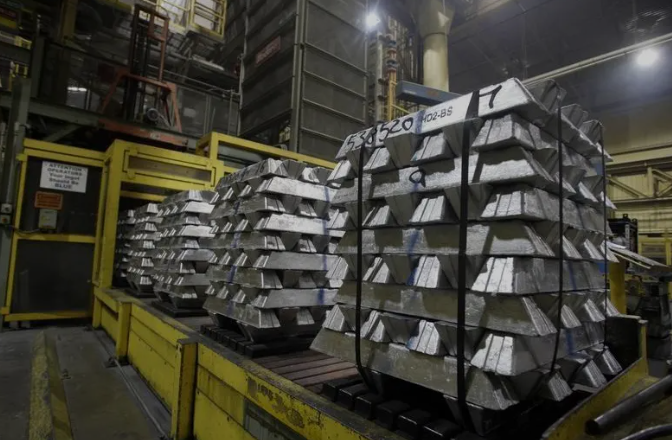European Aluminium suggests ban on Russia-origin aluminium and not on Rusal
European Aluminium, a member-based industry association representing Europe's aluminium value chain, commands the European Union to impose sanctions on aluminium supplied from Russia and exclude EU-based companies owned by Rusal.

The European Union has been considering banning aluminium of Russian origin due to the geopolitical crisis between Russia and Ukraine. So far, the action has not come into effect but has not been completely discarded, given the volume of Rusal's aluminium supplies. In 2023, Rusal sold 4.2 million tonnes of aluminium, most of which was produced in Russia.
Rusal also has operations in other parts of the world, such as Ireland, Sweden, Jamaica, Guinea and China, but these assets mainly produce bauxite and alumina.
However, it should be noted here that European Union's imports of Russian primary aluminium have dropped since 2018. According to Trade Data Monitor, EU imported 512,122 tonnes of aluminium in 2023 that accounted for 8 per cent of the total imports compared to 12 per cent in 2022 and 19 per cent in 2018.

The European Union has banned aluminium wire, foil, tubes, and pipes supplied from Russia. But besides that, the major portion of exports, including primary metal, which accounts for 85 per cent of Russia's total aluminium exports, remain outside the scope of the measure, according to European Aluminium.
"The principle behind EU sanctions has been to try and do as much as possible to undermine the Russian war machine without creating harm to European industrial and by extension, societal interests," said Paul Voss, Director General of European Aluminium.
Commenting on the EU’s measure, Rusal, one of the world's largest aluminium producers, said: “The main victims of sanctions against Russian aluminium would be European small and medium-sized downstream companies, which are an important part of the European economy and are responsible for some 70 per cent of turnover and 92 per cent of employment of the European aluminium industry. They are the ones, who will face shortages, higher prices and be forced to buy higher carbon aluminium from companies using coal fired smelters.”
The company also said, “Production of primary aluminium in Europe is decreasing – Europe imports almost 90 per cent of its aluminium. To impose sanctions against Russian aluminium, the EU immediately cuts supply of 500 thousand tons of the metal per year. More than 95 per cent of Russian aluminium is produced using domestic hydroelectricity. Any ban of the Russian aluminium given it is the largest external source of low carbon aluminium in the world works actively against decarbonisation and the green energy transition.”
It finally added, “It is unclear as to why a ban on the import of alumina and bauxite would harm the European economy, but a ban on Russian aluminium would not.”
This news is also available on our App 'AlCircle News' Android | iOS


























